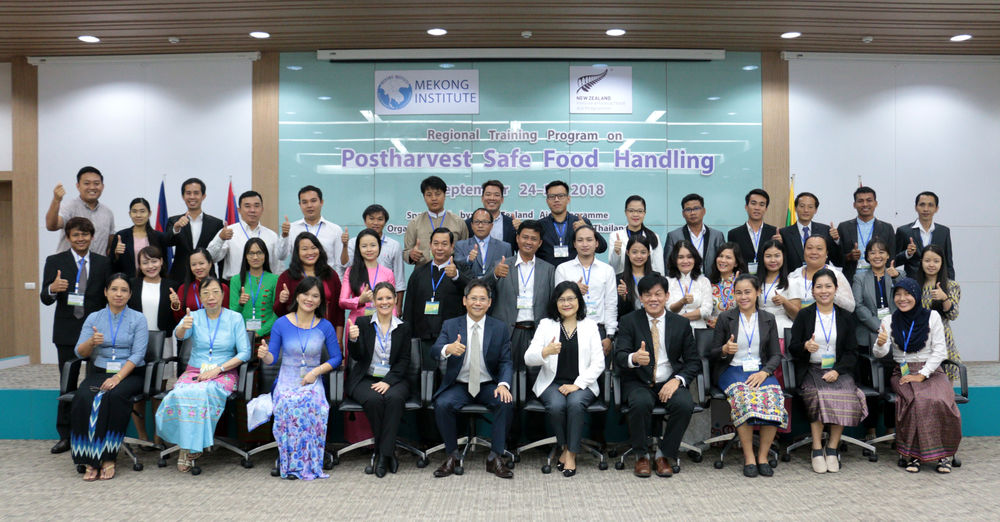The seventh training course under MI’s PROSAFE Project (Promoting Safe Food for Everyone) brings focus on postharvest handling practices in ensuring food safety. The one-week regional training on ‘Postharvest Safe Food Handling’, which opened on September 24, 2018, underscores the importance of maintaining safe food practices throughout the food supply chain. The training gathered 31 participants working in postharvest and food safety management in government agencies, academe, and the private sector in Cambodia, Lao PDR, Myanmar, and Vietnam.
“Good postharvest handling is important to prevent contamination and food-borne diseases,” Dr. Watcharas Leelawath, MI Executive Director said in his opening remarks. He further emphasized that in order to assure food safety along the supply chain, the government should serve not just as regulators but also as facilitators with and among the private sector so a cohesive, multi-sectoral response to food safety can be delivered.
The safe food course introduces participants to the importance of postharvest safe food handling and essential postharvest practices including standard operating procedures that can be developed to document postharvest handling practices and thereby reduce food safety risks. Sessions are delivered by Dr. Jun Acedo, a postharvest expert and Senior Program Specialist at MI’s Agricultural Development and Commercialization Department, and Ms. Susannah Roelofsz, food safety trainer from New Zealand’s AsureQuality, Ltd.
The training contributes to the PROSAFE Project’s overall goal of building local capacities for an enhanced food safety culture in CLMV. The Project receives support from the New Zealand Aid Programme (NZAP).








